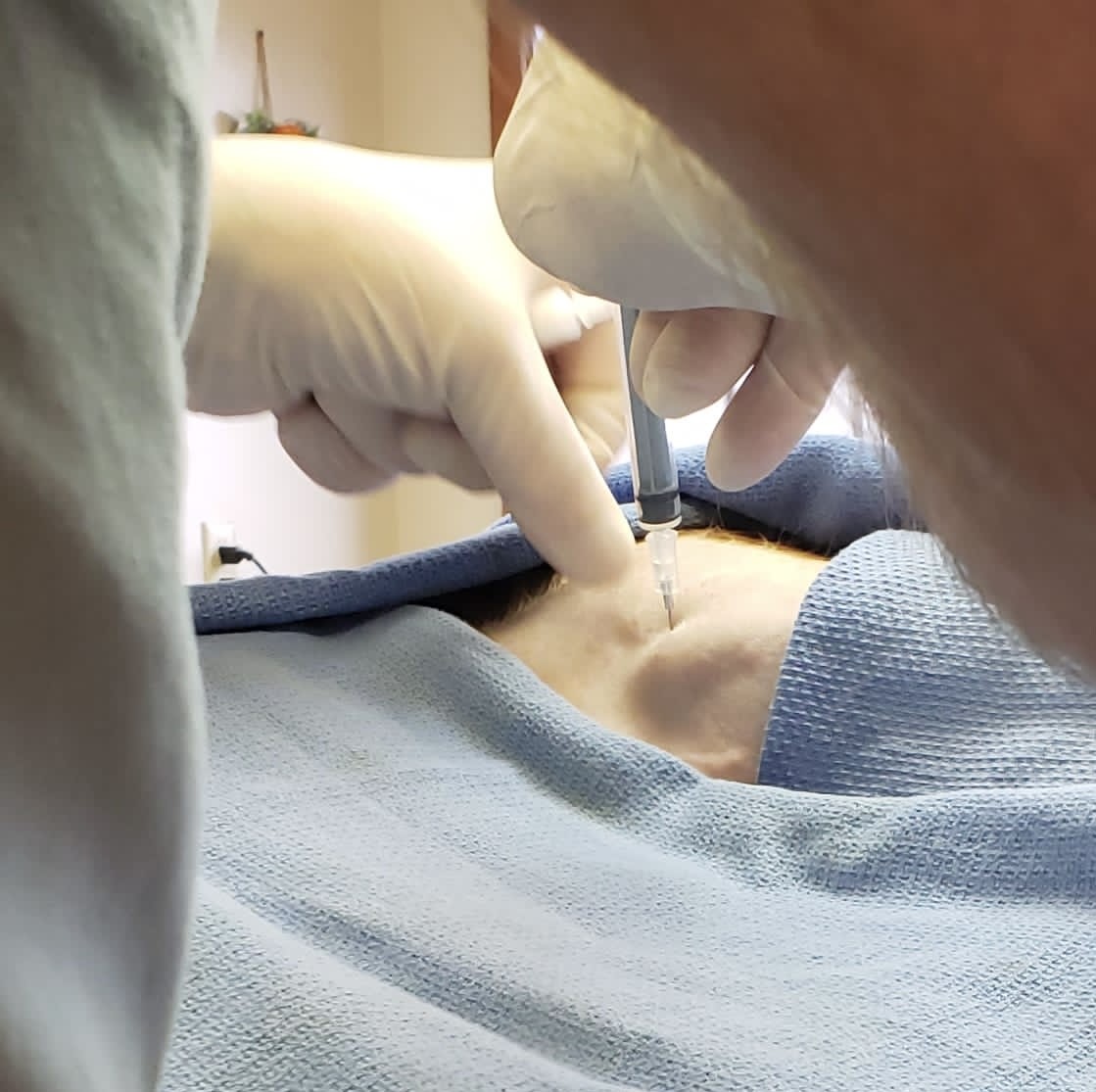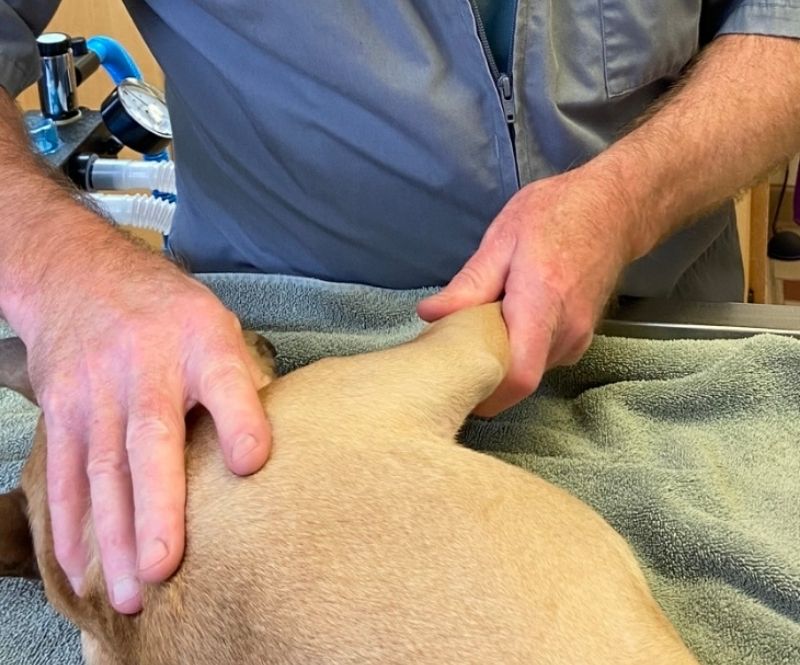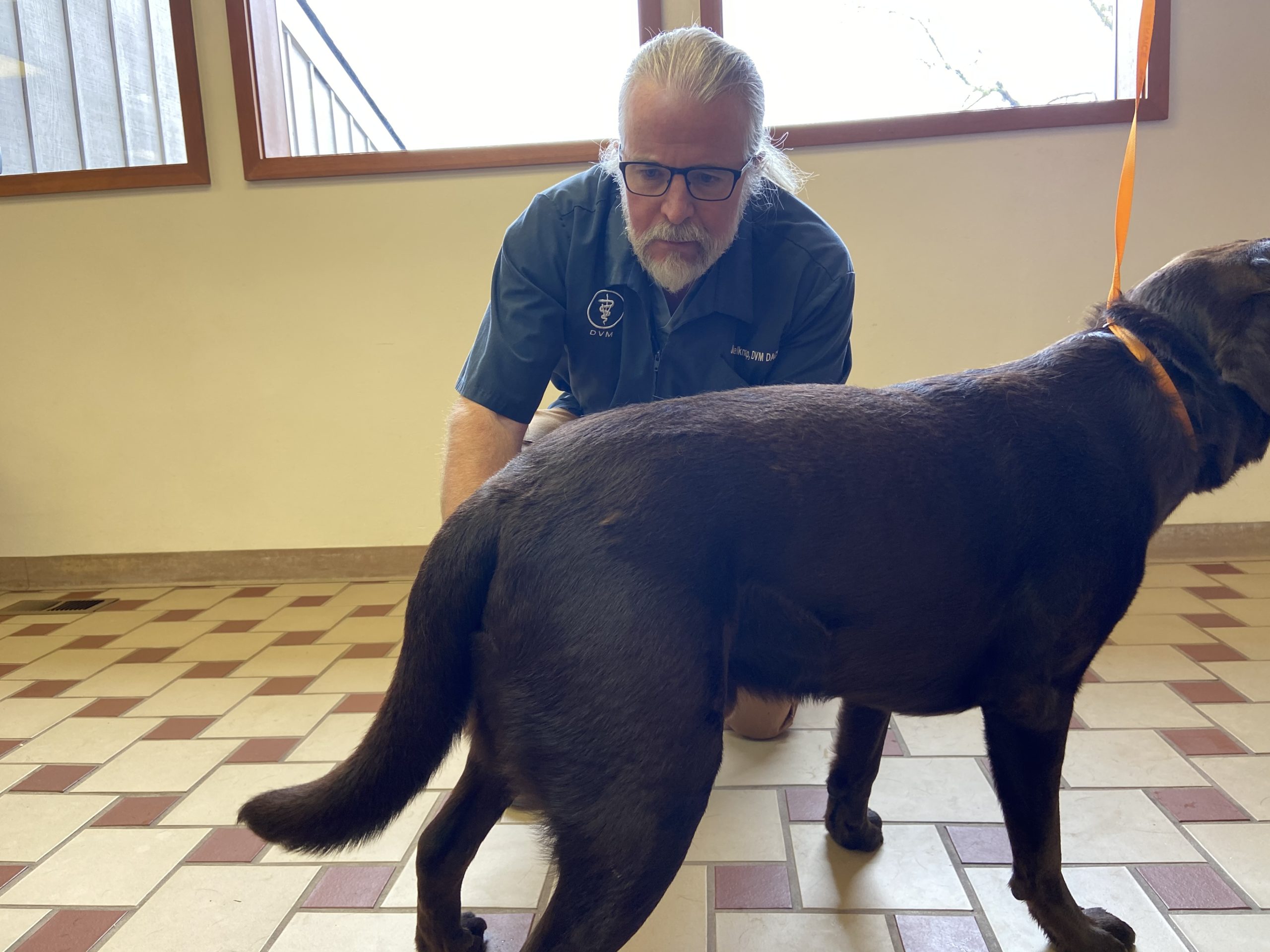Pet Lameness Diagnosis and Treatment in Raymond, WA
Dr. Belknap has a great interest in the diagnosis and treatment of canine lameness, including those not responsive to NSAIDs (i.e. meloxicam, carprofen).
Pet Lameness Diagnosis and Treatment Services
especially in geriatric and young athletes.

Dr. Belknap performing an intra-articular injection into a shoulder joint of a dog with osteoarthritis.
Dr. Belknap has a great deal of interest in working with lameness cases, especially the geriatric patient and the athletic dog not responding to routine therapies. The majority of his patients suffer from osteoarthritis (OA), also known as degenerative joint disease, one of the most common causes of lameness in pets. OA is a disease where the joint(s) loses its normal function due to deterioration of the cartilage surface (normally provides a “slick” surface for joint movement and shock absorption) and inflammation of the joint capsule of the joint cavities (termed synovitis). It is somewhat of a “vicious cycle” as the cartilage degradation leads to more inflammation and the deleterious mediators released in the inflamed joint capsule increase the rate of cartilage deterioration. The pain caused by OA may be evidenced by your pet limping on one limb. However, if more than one limb is involved-which commonly occurs in bilateral OA (especially in older pets) in hips, stifles, or possibly elbows, the pet may primarily show decreased willingness to exercise or more difficulty getting up and down from their bed. Using a combination of an in-depth physical and lameness examination combined with radiographic imaging, we can usually isolate the joint(s) affected. Importantly, in animals not responding to routine pharmaceutical agents, we can commonly get a marked response to joints injections-similar to those performed in humans. Not every case shows a consistently positive response, but we commonly obtain a marked improvement lasting up to 6-12 months. This can make a vast improvement in the quality of life of your geriatric pet or possibly the performance of your middle-aged athlete. Dr. Belknap will commonly offer this before going to a more invasive and expensive surgical option in the older pet or in the case where finances do not allow for expensive surgery.


